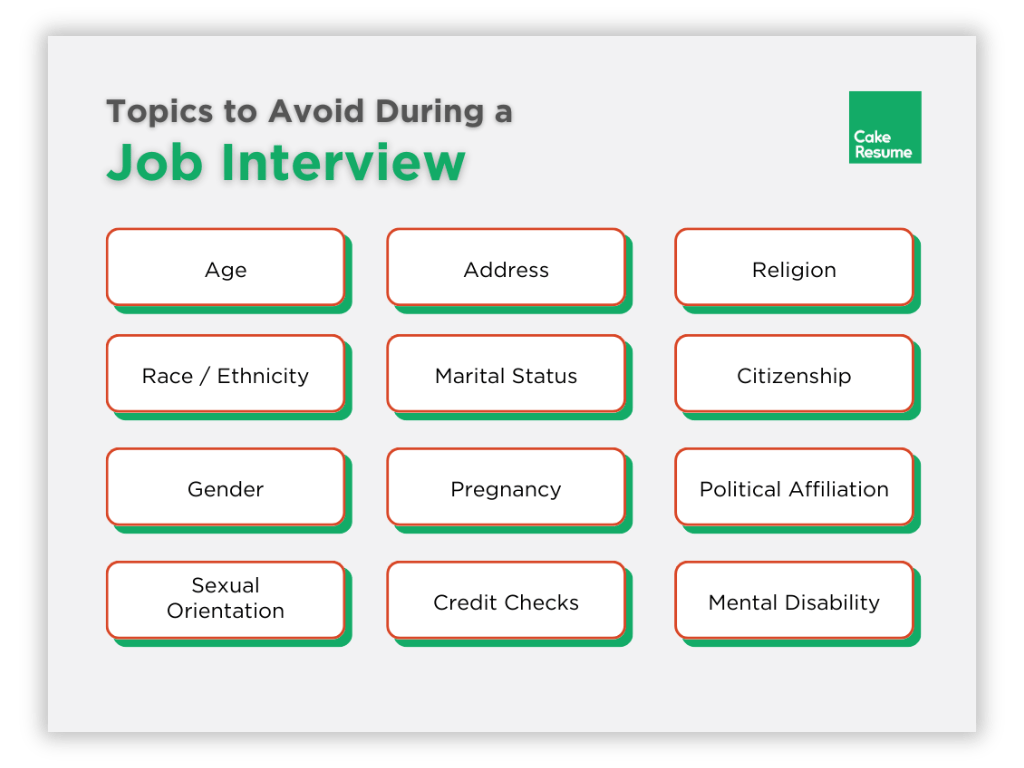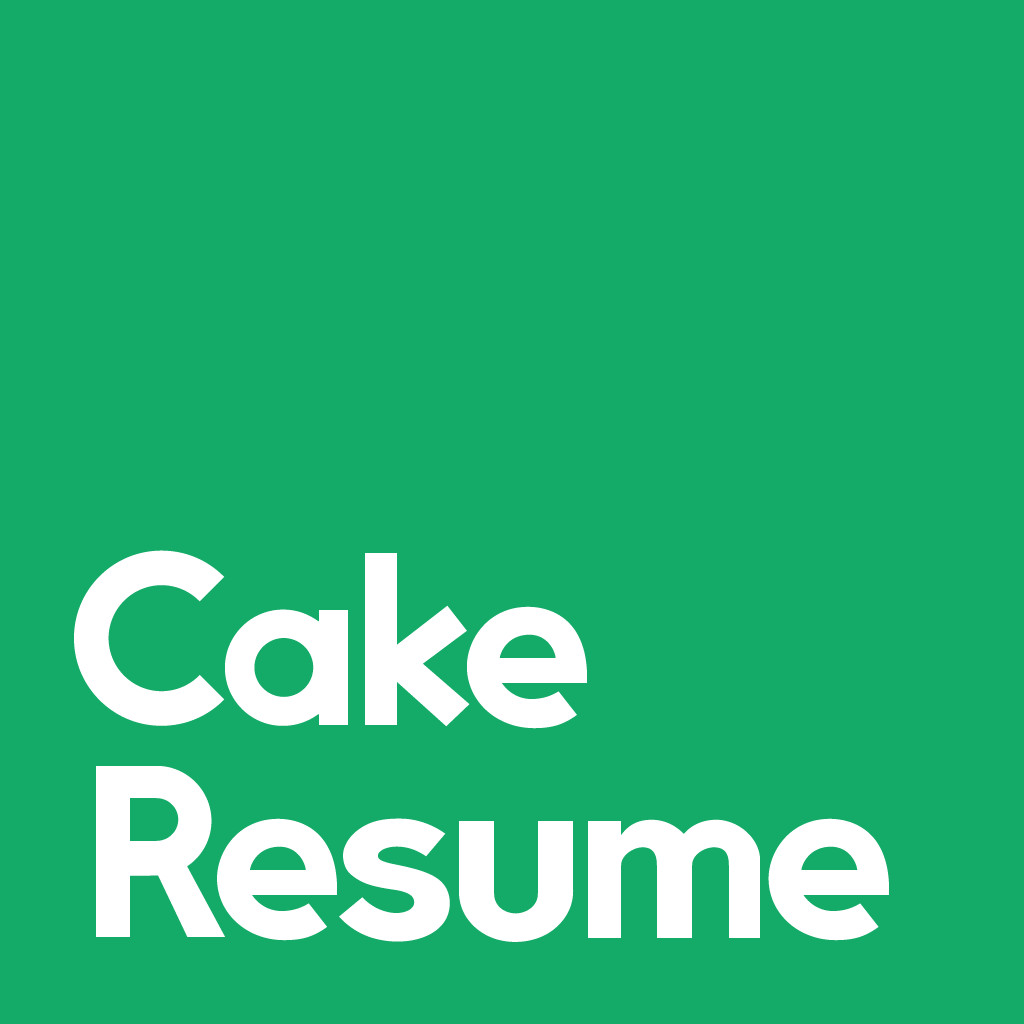55 Illegal Questions to Avoid Asking in a Job Interview

In this article, you'll read about:
Many job candidates may have encountered various discriminatory questions. Questions such as "Are you married?" and "How old are you?" may seem harmless, but they are actually illegal to ask during an interview. It is important for candidates to be aware of these illegal questions and for employers to avoid asking.
Employers should avoid asking illegal interview questions to prevent hiring discrimination. Hiring discrimination cast several negative effects on both employees and employers. In addition to the legal consequence and fine, it has a disastrous effect on a company’s public relations and its internal morale.
Questions that will be constituted as illegal for the employer to ask are often questions whose relevance cannot be justified by the description and requirements of the job. For instance, the question, are you religious, carries a discriminatory undertone against one’s religion, which, as a result, is a determining factor for hiring discrimination.
What Are Illegal Interview Questions?
Protected by the US Equal Employment Opportunity Commission (EEOC), candidates must not be asked certain questions that can be constituted as discriminatory during the interview process.
What is EEOC?
Established via The Civil Right Act of 1964, the US Equal Employment Opportunity Commission (EEOC) is a federal agency that administers and enforces the civil rights law. In addition to the consultancy of mediation and settlement on discrimination complaints, they also investigate discriminatory events to combat any malpractices.
Legal Consequences
Employers who are reported will have to undergo a series of investigations by EEOC, and if found guilty, they must incur a legal fine ranging from 50,000 dollars all the way up to 300,000, according to the size of the company.
EEOC Guidelines
By defining a set of protected characteristics, illegal interview questions posted by employers are subjected to the effect of the EEOC guidelines. Employers must be cautious about the topics of the interview questions when conducting interviews, and they are prohibited from discriminating against the candidates’ age, race, gender, sex, religion national origin, physical or mental disability.
What Questions Should Not Be Asked?
In the following list, we have concluded 15 different subjects of questions that employers cannot ask during a hiring interview.
- Age
- Race / Ethnicity
- Gender / Gender Identity/ Sexual Orientation
- Address
- Pregnancy
- Unemployment Status
- Credit Checks
- Religion
- Arrest Record/ Conviction
- Physical Disability
- Mental Disability
- Marital Status
- Citizenship
- Political Affiliation
- Height / Weight
What Questions Can and Cannot be Asked in an Interview?
Although there are some topics that are just too discriminatory and insensitive to ask without breaching the law, there are questions where the executions and its context dictate the legitimacy of the questions. Therefore, we have collected a list of topics in which there will be two ways of asking questions of the subject both legally and illegally.
Age
Legal
- Are you at least 18 years old?
- How would you deal with the extensive traveling and physical labor that the job entails
(For jobs where there are age requirements, it is acceptable to ask the candidates for their age directly.)
Illegal
- How old are you?
- How many years had you worked prior to this application?
- What year did you graduate from university?
Address
Legal
- What was your previous address?
- And how long did you live there?
- What is your current address?
Illegal
- Are you currently renting, or are you a homeowner?
- Who do you live with?
- Are you living in a studio or a shared apartment?
Country of Origin/ Citizenship
Legal
- Are you legally eligible to work in the country?
- Can you speak English?
- Do you speak any other languages besides English?
Illegal
- Can you please provide your birth certificate to us?
- Are you a child of immigrants?
- Do you have US citizenship?
Gender/ Gender Identity/ Sexual Orientation
Legal
(For jobs where there are gender requirements, it is acceptable to ask the candidates for their gender.)
Illegal
- What is your gender identification?
- What is your sexual orientation?
- How do you identify your gender?
Disability
Legal
- Do you have any underlying conditions that might keep from performing the tasks that the job entails?
- Can you perform all the tasks in the job description with or without reasonable accommodation?
- Can you perform the functions that the job entails?
Illegal
- Have you been to rehab?
- Have you ever been diagnosed with any mental illness?
- Do you have any physical or mental disability?
Medical Questions/ Medical Examination
Legal
- The job requires a universal medication examination for all candidates. Do you agree with this condition?
- How would you perform the responsibilities of the job?
(For jobs where there are certain physical and mental requirements, it is acceptable to require that the candidate pass relevant medical exams.)
Illegal
- Are you taking any prescription drugs?
- Do any of your family members have suffered from mental health?
- Have you ever had cancer?
Marital Status/Pregnancy/Family
Legal
(None)
Illegal
- Are you married?
- Are you single?
- How many children do you have?
Race/Ethnicity/Color
Legal
(None)
Illegal
(Questions regarding race and color are genuinely discriminatory.)
Religion
Legal
- Can you work on the weekend?
- (None)
Illegal
- Are you a Christian?
- Are you religious?
- Are you baptized?
Height/Weight
Legal
(Accurately state the physical requirement that the job entails and subsequent questions on whether they can perform the duties.)
Illegal
- How much do you weigh?
- How tall are you?
- What is your BMI?
Financial Information
Legal
- Do you own a vehicle? (Only if is it part of the proven job requirement)
- What are your means of transportation? (Only if it is part of the proven job requirement.)
- Do you have a bank account? (Only if it is part of the proven job requirement.)
Illegal
- Do you have any savings?
- Do you have any mortgages?
- How much do you have in savings?
Unemployment Status
Legal
- What is your salary expectation?
- How long have you been unemployed? (Only if it is part of the proven job requirement.)
- How long did you stay in your last position?
Illegal
- When did you have your first job?
- Are you receiving unemployment checks?
- How long have you been in the workplace?
Background or Credit Checks
Legal
(All questions asked must be permitted under the Fair Credit Reporting Act of 1970 and the Consumer Credit Reporting Reform Act of 1996.)
Illegal
- Have you ever declared bankruptcy?
- What is your credit score?
- Are you in debt?
Arrest Record/Conviction
Legal
(For jobs that are security-sensitive, it is acceptable to ask questions that are relevant)
Illegal
- Have you been arrested before?
- Are you an ex-convict?
- When was the last time you committed a crime?
Things to Be Careful with When Asking Interview Questions
Although EEOC has been a long-standing standard for discriminatory or even illegal questions asked in an interview, there are certain questions that are not explicitly enlisted by the agency but can easily be considered discriminatory since these illegal questions might be in violation with other EEOC principles for their connotations. Here is a list of questions that employers should ask in an interview.
Availability
- Legal:
- Can you travel to work?
- What are your means of transportation?
- Illegal:
- Can you work on a Sunday? (Religion)
- Are you available for the night shift? (If only asked to certain demography)
Education
- Legal:
- What is your major in university?
- Do you have a bachelor’s degree or equivalent?
- Illegal:
- When did you graduate? (Age)
- Are you in debt with student loans? (Financial Information)
Emergency Contacts
- Legal:
(Questions regarding emergency contact can only be asked once the employment is confirmed)
- Illegal:
- What is your emergency contact?
- Is your partner in your emergency contact?
Military Service
- Legal:
- What experience that you acquired during your service can be beneficial for the job?
- What lessons that you learned during service can be translated into your professional capacity?
- Illegal:
- Why were you discharged?
- Have you been in any military service apart from your service in the U.S army?
Personal Information
- Legal:
- Have you worked under different names in a professional environment?
- Do you have any personal references?
- Illegal:
- Do you plan on having kids in the near future? (Marital)
- Are you a child of immigrants? (Citizenship)
Non-Professional Organizations
- Legal:
- Are you a member of IEEE?
- Are you CPA certified?
- Illegal:
- Are you a member of the local golf club?
- Were you in a fraternity?
Relatives
- Legal:
- Do you have any relatives that work for us?
- Do you have any relatives that work for our competitors?
- Illegal:
- What is your cousin’s name?
- What is the name of your brother that works for our competitor?
Key Takeaways
The quality of employees hired is as good as the employers’ questions in the interview. Yet, employers must pay attention to the legal guidelines behind the questions they ask, to avoid any legal consequences. In addition to the examples of illegal interview questions above, here are our tips for employers who hope to avoid any illegal interview questions.
- Focus on the Requirements: Relevance plays a big part in the context of your interview questions, and therefore interview questions should be precisely and cohesively tailored to the description of the job itself to avoid the possible occurrence of illegal questions.
- Prepare Your Questions: Review EEOC guidelines or consult HR professionals before conducting the interview. Design a set of questions that professionally and legally addresses the hiring specifications. Sometimes, there are different ways of asking the questions that are not objectively discriminatory.
Found this article helpful? Follow our blog for more. CakeResume is the best resume builder available on the market. We also provide a talent search service to all employers. Talk to one of our consultants for more detail.
CakeResume is a free resume builder that allows users to create professional online resumes and portfolios, which can also serve as personal web pages. Its simple and intuitive interface allows users to build their professional online resumes and portfolios and showcase their skills and accomplishments to potential recruiters and employers. We also offer many other services for employers to find and connect to top talents worldwide. CakeResume is the trusted partner of many multination corporates and startups in Taiwan and the APAC region.
— Originally written by Jun Mao —
More Career and Recruitment Resources

With the intention of helping job seekers to fully display their value, CakeResume creates an accessible free resume/CV/biodata builder, for users to build highly-customized resumes. Having a compelling resume is just like a piece of cake!






